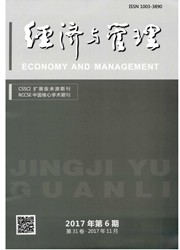

 中文摘要:
中文摘要:
通过动态面板GMM估计方法,利用中国1992—2009年的省际面板数据,对FDI与城乡收入差距的动态关系进行实证研究。结果发现:FDI的引入在一定程度上具有缩小城乡收入差距的作用,而人力资本却显著降低了FDI缩小城乡收入差距的正向效应。进一步研究发现,FDI对城乡收入差距的影响以2003年为分界线,呈现不同的特点:1992—2002年,FDI具有缩小城乡收入差距的作用,但这种作用呈现不断弱化的趋势;而2003年以后,FDI却显著扩大了城乡收入差距,说明FDI对城乡收入差距的影响是一个动态变化的过程。
 英文摘要:
英文摘要:
Using data of China's provinces during the period of 1992-2009 and GMM dynamic panel estimation method,this paper studies effect of FDI in reducing China's urban-rural income inequality.The results showed that:FDI influx can significantly reduce the urban-rural income gap,but human capital significantly reduced that positive effect of FDI,indicating that human capital will also affect the impact of FDI on income inequality.We also found that,FDI impact on the urban-rural income gap for the sector in 2003 show different characteristics:1992-2002,FDI has a role in narrowing the income gap between urban and rural areas,but this effect has been weakening trend;after 2003,FDI significant expansion of the urban-rural income gap,indicating the FDI impact on the urban-rural income gap is a dynamic process of change.
 同期刊论文项目
同期刊论文项目
 同项目期刊论文
同项目期刊论文
 期刊信息
期刊信息
